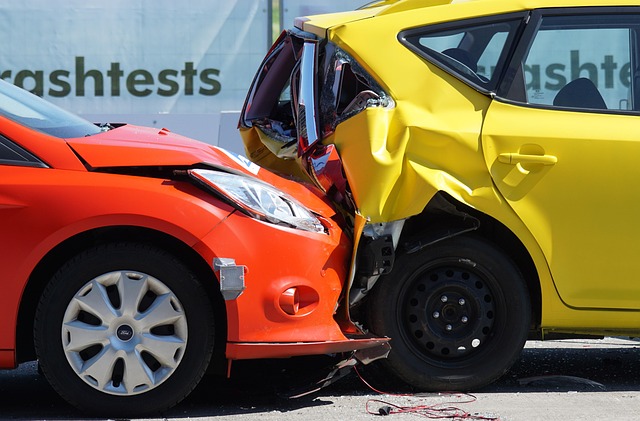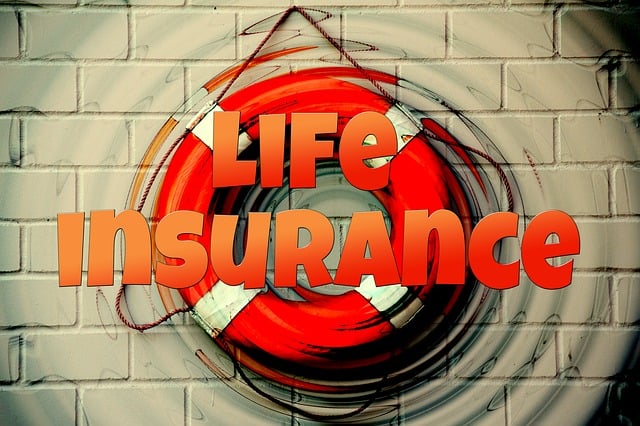Collision insurance protects against financial losses from vehicle accidents, covering repairs, towing, and rental cars. In contrast, comprehensive auto insurance offers broader protection against non-collision events like theft, vandalism, and natural disasters. When choosing between them, consider driving habits, accident history, area of residence, and cost implications. Collision coverage focuses on accident-related damages, while comprehensive protection includes a wider range of incidents. Understanding these differences is crucial for making an informed decision based on individual needs and risk tolerance.
Navigating the world of auto insurance can be confusing, especially when choosing between collision and comprehensive coverage. This article helps you understand the nuances of these two critical policies. We delve into collision insurance’s focus on specific events like accidents and its benefits for vehicle repair or replacement. Comprehensive insurance, meanwhile, offers broader protection against various risks, from theft to natural disasters. Through scenario-based analysis, decision factors, legal aspects, and common misconceptions, we guide you in choosing the right coverage for your peace of mind and protected investment.
Understanding Collision Insurance: Coverage and Benefits

Collision insurance, as the name suggests, covers repairs or replacements due to accidents involving your vehicle. It’s designed to protect you from financial burdens when your car collides with another object or is hit by a driver who lacks sufficient coverage. This type of insurance typically includes benefits like fixing or replacing damaged parts, towing services, and even rental cars while your vehicle is being repaired. When considering Collision vs. Comprehensive Auto Insurance, understanding the nuances of collision coverage is essential. Unlike comprehensive insurance that offers broader protection against various non-collision events such as theft, vandalism, or natural disasters, collision insurance focuses solely on accidents.
Comprehensive Insurance: What It Covers and Why It's Important

Comprehensive insurance offers protection beyond what collision coverage provides, making it an attractive option for many vehicle owners. While collision insurance primarily covers damages resulting from accidents involving other vehicles or objects, comprehensive insurance steps in to protect against a broader spectrum of risks. This includes damage caused by natural disasters like floods, hurricanes, and earthquakes, as well as theft, vandalism, and even falling objects.
Having comprehensive coverage can be especially important for those who live in regions prone to severe weather conditions or high rates of auto crime. It provides peace of mind knowing that your vehicle is safeguarded against unexpected events that could leave you financially burdened. Moreover, when compared to collision insurance, comprehensive coverage often proves more cost-effective for drivers with older or lower-value vehicles since it omits the expensive deductibles typically associated with collision claims.
Scenario-Based Analysis: When to Choose Collision vs. Comprehensive

When deciding between collision and comprehensive auto insurance, understanding when each type is most suitable is key. Collision vs. Comprehensive Auto Insurance is a choice that policyholders must make based on their individual needs and risk tolerance. Collision coverage is primarily designed to protect against damage caused by accidents involving another vehicle or stationary object. This includes repairs or replacements for both your car and the at-fault driver’s vehicle up to the actual cash value (ACV) of your insured vehicle.
Comprehensive insurance, on the other hand, covers a broader range of perils beyond accidents, such as natural disasters, theft, vandalism, and animal-related damage. It will pay for repairs or replace your vehicle up to its ACV. Consider your driving habits, frequency of accidents, and area of residence when making this decision. For instance, if you live in a region prone to severe weather events, comprehensive insurance may be the better choice. Similarly, if you’re a cautious driver with a clean record, collision coverage might offer adequate protection without the added cost of comprehensive.
Deciding Factors: Cost, Claims, and Policy Exclusions

When deciding between collision and comprehensive auto insurance, several key factors come into play. One of the primary considerations is cost. Collision coverage typically covers damages resulting from accidents, while comprehensive protection includes a broader range of events like theft, vandalism, or natural disasters. Understanding the price difference between these policies is essential as it can significantly impact your overall insurance expenses.
Additionally, claims processes and policy exclusions vary considerably. Collision insurance usually requires you to pay a deductible before the insurer covers the rest, whereas comprehensive plans often have higher deductibles but may include specific scenarios that collision coverage excludes. Assessing these differences will help determine which type of policy aligns best with your needs and budget, ensuring you’re adequately protected without paying for unnecessary features.
Legal and Regulatory Aspects of Auto Insurance Requirements

In many regions, choosing between collision and comprehensive auto insurance isn’t just a matter of personal preference; it’s also governed by legal and regulatory frameworks. Every country and even some states or provinces have specific requirements for minimum coverage levels that drivers must adhere to when insuring their vehicles. These regulations are designed to ensure that all road users are protected in the event of accidents, with the onus often falling on comprehensive insurance to cover a broader range of unforeseen events, including natural disasters, theft, and vandalism.
Understanding these legal and regulatory aspects is crucial when deciding between collision and comprehensive coverage. Collision insurance primarily focuses on damage caused by collisions with other vehicles or objects, while comprehensive insurance provides protection for a wider array of risks, ensuring drivers are in compliance with local laws and have adequate financial safeguards against potential losses beyond their control.
Common Misconceptions About Collision and Comprehensive Policies

Many people often confuse or are unsure about the difference between collision and comprehensive auto insurance, leading to misconceptions that can impact their choices. A common mistake is assuming that both cover all types of damage. However, this is not the case. Collision coverage specifically pays for damages resulting from accidents, including collisions with other vehicles or fixed objects. It does not include losses due to weather conditions, theft, or vandalism. On the other hand, comprehensive insurance offers broader protection, covering a wide range of incidents beyond accidents—such as natural disasters, animal-related incidents, and car theft or damage from acts of vandalism.
Another misconception is that collision insurance is always more affordable than comprehensive. While it may be cheaper for policies with lower deductibles, comprehensive plans can provide better value in the long run, especially if you have a newer vehicle or live in an area prone to specific risks like floods or high crime rates. Comparing quotes and understanding your needs is crucial before deciding between collision vs. comprehensive auto insurance.
Tips for Comparing and Choosing the Right Coverage for You

When deciding between collision and comprehensive auto insurance, it’s crucial to understand the nuances of each coverage type. Start by evaluating your driving history and vehicle condition. If you have a clean record and drive a well-maintained car, comprehensive insurance might be overkill, as collision coverage could offer sufficient protection at a lower cost. However, if you’re prone to accidents or own an older, high-value vehicle, comprehensive insurance provides added peace of mind by covering a broader range of damages, including those not related to collisions.
Next, consider your budget and personal preferences. Comprehensive insurance typically covers more scenarios, such as theft, natural disasters, and vandalism. This makes it appealing for those who live in areas prone to these risks. On the other hand, collision coverage focuses on damage resulting from accidents, offering repairs or replacements when you’re at fault. Compare quotes from various insurers, ensuring you understand the deductibles involved with each option. By weighing these factors, you can make an informed decision tailored to your specific needs and budget.
Conclusion: Making an Informed Decision for Your Vehicle Protection

When deciding between collision and comprehensive auto insurance, understanding the nuances of each coverage is key. While collision insurance primarily covers damages resulting from accidents with other vehicles or fixed objects, comprehensive insurance takes a broader approach by protecting your vehicle from a wide range of risks, including theft, vandalism, and natural disasters. Both types of coverage are vital for ensuring your peace of mind and financial security on the road.
Making an informed decision requires evaluating your driving habits, the value of your vehicle, and the likelihood of encountering specific risks. If you tend to drive cautiously and live in a secure neighborhood, collision insurance might suffice. However, if you frequently encounter harsh weather conditions or are more susceptible to theft, comprehensive coverage offers enhanced protection. Ultimately, choosing between collision vs. comprehensive auto insurance should be based on an individual assessment of your needs and the associated risks, ensuring that your vehicle remains safeguarded regardless of unforeseen circumstances.
